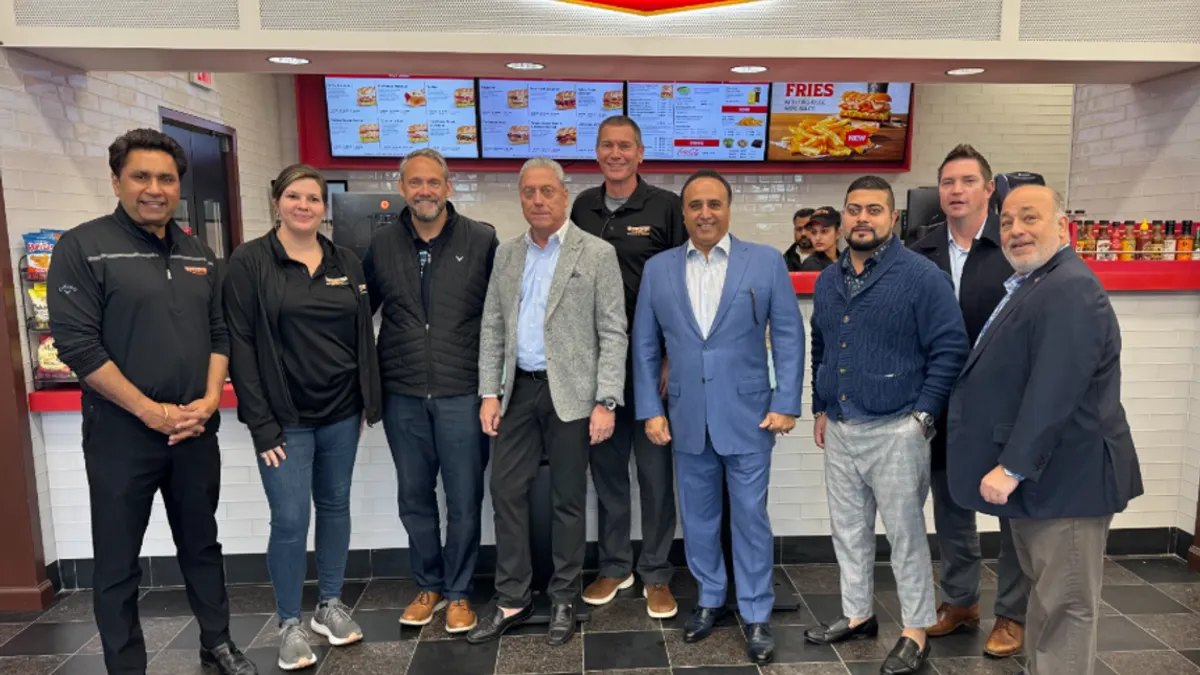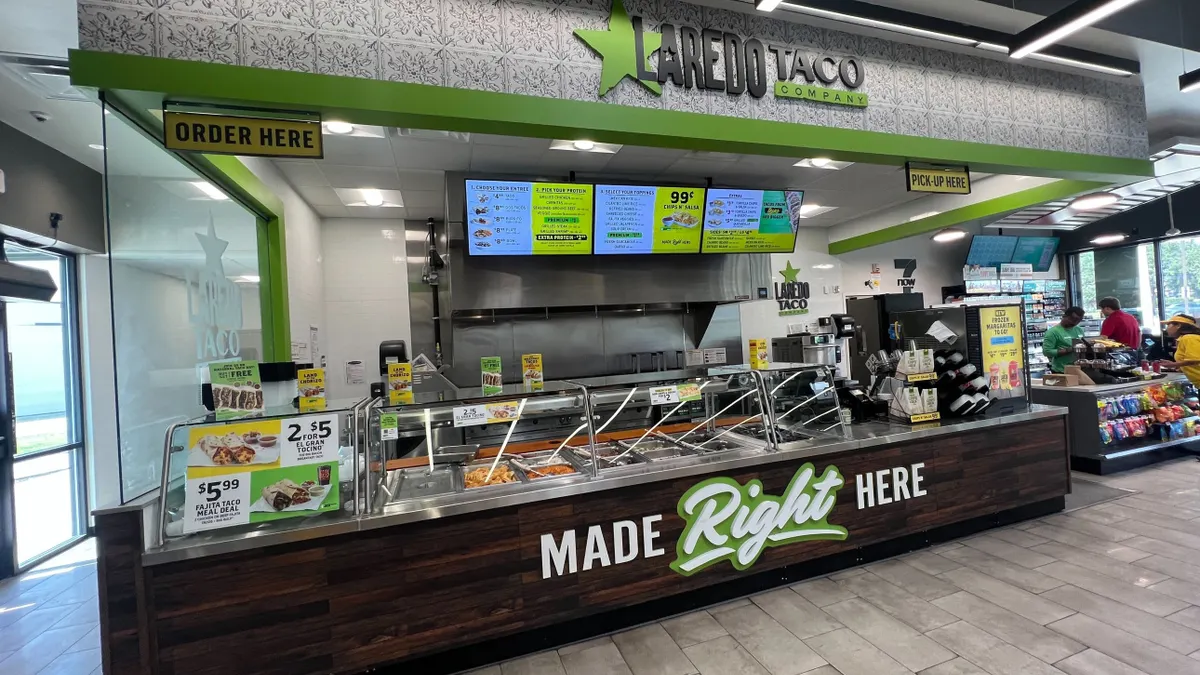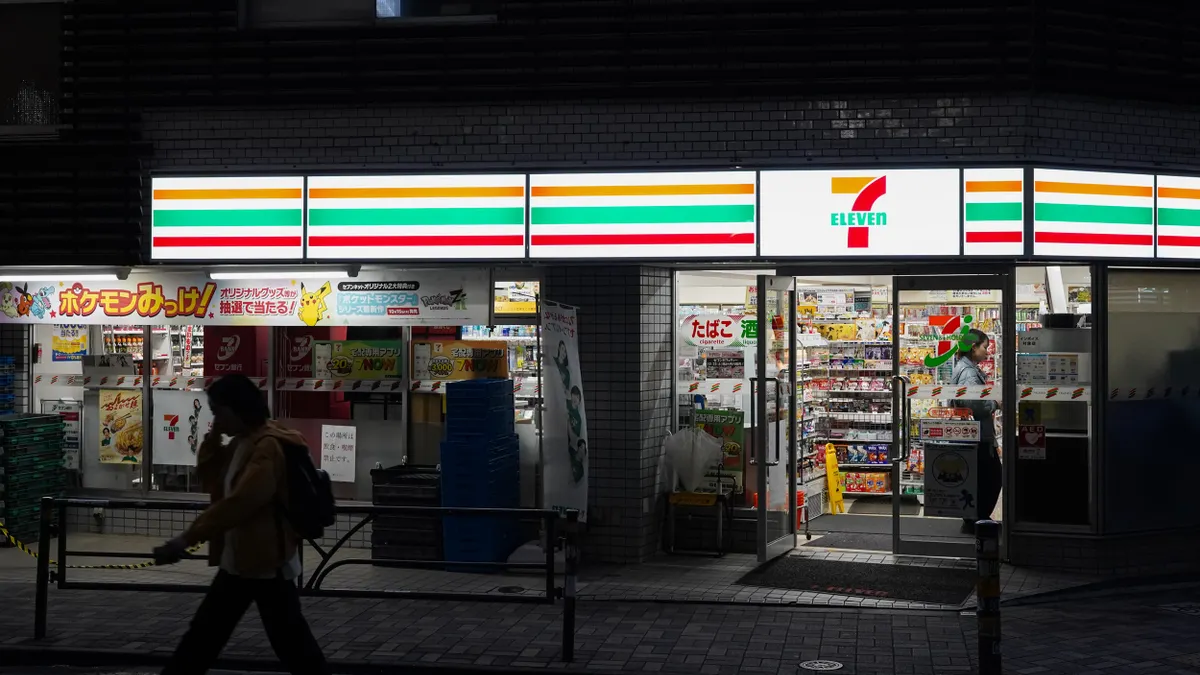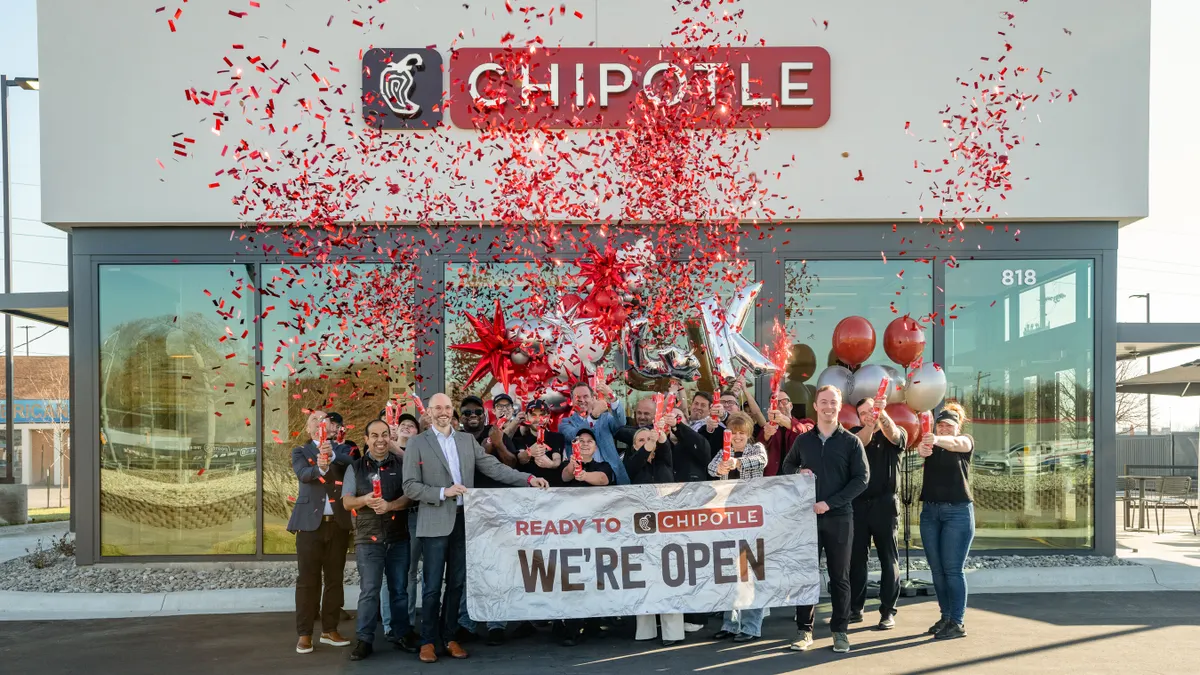Unable to come to an agreement on new lease terms with a landlord, Punch Bowl Social permanently closed two of its 20 locations this month. While many landlords have been working closely with restaurant tenants to come up with agreeable leases, some landlords are less willing to budge on rent deferrals and abatements, which could lead to more closures in the coming months.
But for Punch Bowl Social, this is just a small hitch in its reopening plans.
“When we re-open across the country, we will do so smartly and with partners who are in it with us. Moving forward, we will only be working with landlords with whom we can establish suitable and mutually beneficial terms,” Robert Thompson, founder and CEO, said in a statement emailed to Restaurant Dive.
The two locations that closed in Stapleton, Colorado, and Schaumburg, Illinois, are also near other Punch Bowl Social locations, with its original South Broadway location in Denver and its West Loop location in Chicago.
While the chain wasn't able to find a way forward with one of its landlords, Punch Bowl was able to secure terms such as abatement, deferment and a percentage rent over the next three years, Thompson told Restaurant Dive, adding that despite the inability to work something out with this one landlord, its other landlords understand the situation restaurants are in. These closures aren’t indicative of current or future business decisions regarding the company’s reopening plans, Punch Bowl told Restaurant Dive via email.
“We’re just not willing to participate in any location where the landlords are not interested in coming together in a partner-like manner, to define upsides for both of us going into the future,” Thompson said. “It is what it is.”
These two closures also don’t change Punch Bowl's plans for reopening its remaining 18 locations, which have been closed since March following dining room restrictions and stay-at-home orders. While the chain remains closed due to capacity limits in dining rooms, Thompson said it won’t reopen until guidelines are less restrictive. As early as this summer, it may open a test site in Texas or Georgia where it could work with reduced capacity. Because its locations tend to have significant square footage, it can separate tables further apart safely but still have 600 people inside a location exercising social distancing.
“We're excited to relaunch the system. We think that, you know, people are not going to abandon the human need for social interaction,” Thompson said. “I think people need to go out and have a good time, now more than ever.”
Despite this setback, Punch Bowl Social’s future is looking a little brighter as the chain has been working closely with its lender CrowdOut over the last three months following the loss of an investment from Cracker Barrel. Thompson said CrowdOut's approach is to trust the management team to find a solution that is in everyone’s interest and capital conversations are going well. Thompson expects more updates on this front in the future.
But the issues Punch Bowl Social faced with a landlord are indicative of a larger trend in the restaurant industry. While not all landlords are cutting ties with restaurants, the landlord/tenant relationship could get more tenuous the longer restaurants are unable to provide rent.
Chains continue to struggle to pay rent
A majority of chains, including The Cheesecake Factory, Subway, Chipotle, Dunkin’ Brands, Applebee’s, Yum Brands, Ruth’s Hospitality Group, and Shake Shack have been working with landlords to reach new rent agreements. Starbucks has asked its landlords for a year of rent relief, but is already facing criticism after it paid April and May rents at most of its stores and has a market capitalization of $86 billion. Landlords have said it should be able to raise debt or equity to meet its rent obligations, according to The Wall Street Journal.
“In this climate tenants and landlords need to work together to get through the next 12 to 18 months,” Catherine Meunier, partner/retail at Maven Properties, a commercial real estate agency, told Restaurant Dive via email. Her company has been working on lease deals between landlords and retailers. “If a restaurant can only operate at 25% capacity, they aren’t going to be able to pay a rent that was written with the assumption of operation at 100% capacity. In that case they’ll go out of business which is not good for the landlord or the tenant.”
Some retail landlords have been working on ways to help small tenants. Irvine Company Retail Properties let tenants defer rent for 90 days while allowing them to pay that back with no interest over the course of a year starting in January, according to Bloomberg.
But even if agreeable terms are met, the economic situation will only become more complicated for landlords.
Landlords have mortgages to pay, Meunier said. Everyone is trying to cover their costs to avoid losing their buildings or businesses.
“This is a larger economic problem and the restaurants and the retailers are just the first ones to be hit,” Meunier said. “Government assistance and help from lenders will be key to getting past the short-term impacts while the market adjusts.”
Temporary rent forgiveness or discounts could reduce property values, according to The Wall Street Journal. If landlords are not as amenable to working long-term deals out with restaurants, there could be another round of bankruptcies this summer, according to Restaurant Business.
That could mean a lot of empty storefronts for landlords.
“I think that landlords are ... jumping out of one frying pan and into a fire when they make certain decisions,” Thompson said. “They have to think about which tenants they believe are going to be here for the long haul. I think they're going to have to go ahead and acknowledge the pain over the next couple of years in order to be able to retain those tenants because the alternative is no tenant, and without complete confidence about what the replacement tenant is going to look like.”
These vacancies will be hard to fill, but there are still quite a few companies looking for opportunities to adapt, Meunier said, adding that more fast casuals will likely come out of this that can better adjust to the new operating constraints. Second generation space is also highly sought after, and she doesn’t think that will change.
“However, across the board people are going to be extremely cautious with all the uncertainty. The market is changing, and the new tenants will have more power because there are more spaces available,” Meunier said. “It’s important to look at creative ways to structure a deal to help protect both parties so that everyone can be successful.”
Correction: A previous version of this article misstated the number of Punch Bowl Social units reopening. The chain will reopen 18 locations.

















